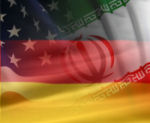 A recent article in today’s international edition of Der Spiegel reports on an interesting analogue, in Germany, to the Majid Kakavand case in France. Just as the court in France seems likely to deny the request by the U.S. for extradition, the German court has already refused a U.S. request to arrest a German citizen for allegedly illegal shipments from Germany to Iran by way of Malaysia.
A recent article in today’s international edition of Der Spiegel reports on an interesting analogue, in Germany, to the Majid Kakavand case in France. Just as the court in France seems likely to deny the request by the U.S. for extradition, the German court has already refused a U.S. request to arrest a German citizen for allegedly illegal shipments from Germany to Iran by way of Malaysia.
U.S. investigators have been trying to get Germany to arrest and extradite a German citizen who allegedly belongs to a network smuggling U.S. electronic components to Iran to be used in roadside bombs in Iraq and Afghanistan. But a German court is blocking the move.
The case has to do with temperature and humidity gauges as well as valves that regulate water flow – the kind of things you can pick up in any sanitation-equipment store.
What makes it unusual is that it also has to do with a request by American law-enforcement officials for their German counterparts to search through the office of a man they have in their sights and confiscate, in particular, “electronic data, written correspondence, invoices and lists of addresses.”
What’s more, these same officials would also like the Germans to extradite the suspect – a German citizen who, for legal reasons, can only be identified as “N.” – so he can face criminal charges in the U.S. As far as the Americans are concerned, the ethnic Iranian businessman from the northern German city of Kiel is an enemy of the state who deserves to be put in prison for up to five years
Well, even if Der Spiegel can’t reveal who “N.” is, we can. He’s Djamshid Nezhad. In September 2008, Mr. Nezhad was made a denied party (as part of the second wave of Mayrow General Trading designations) and was named as a defendant in this indictment in a federal court in Florida.
N. continues to plead his innocence and claims that this has all been a big mistake. But the U.S. is still investigating him. Last year, American officials unsuccessfully petitioned their German counterparts to detain N. Their hopes were stymied when an upper district court for the northern state of Schleswig-Holstein, which is home to Kiel, blocked the request, saying it couldn’t find any factual basis that justified launching a criminal inquiry into N.’s deliveries. The court based its decision on the fact that both German and European law permits the exportation of the components he traded. “The subject is accused of doing something that does not constitute a criminal offense in Germany,” the court found.
Still, the court’s views aren’t wholeheartedly shared by German customs officials, who believe the parts N. ordered from the U.S. could certainly be classified as “dual-use,” thereby rendering their exportation illegal. “One should have applied for an export permit in this country depending on the specification of the components,” said one customs investigator.
What’s interesting here is that, as in the Kakavand case, the extradition request will depend on whether or not the items are on Germany’s list of dual-use items which, of course, is derived from the Wassenaar list, also implement by the U.S. in the Commerce Control List of dual-use items requiring export license. Note also that the U.S. is not claiming that Nezhad’s valves and gauges were used in IEDs shipped by Iran to Iraq. It’s likely that they didn’t. Instead, the government’s interest is based solely on the claim that he is part of a network of exporters, some of whom exported items that were used in the detonation mechanisms for the IEDs.
I’m increasingly of the opinion that the United States is not really expecting to win these cases as much as it is trying to send a message to potential exporters to Iran. The message is that the U.S. will do whatever it can to make your life difficult if you try to ship things from the U.S. to Iran. And if you do ship things to Iran, you might want to limit your international travel plans. Take the family from Germany to Disneyland? Not in this lifetime.
 Permalink
Permalink
Copyright © 2010 Clif Burns. All Rights Reserved.
(No republication, syndication or use permitted without my consent.)

 Posted by
Posted by  Category:
Category: 

